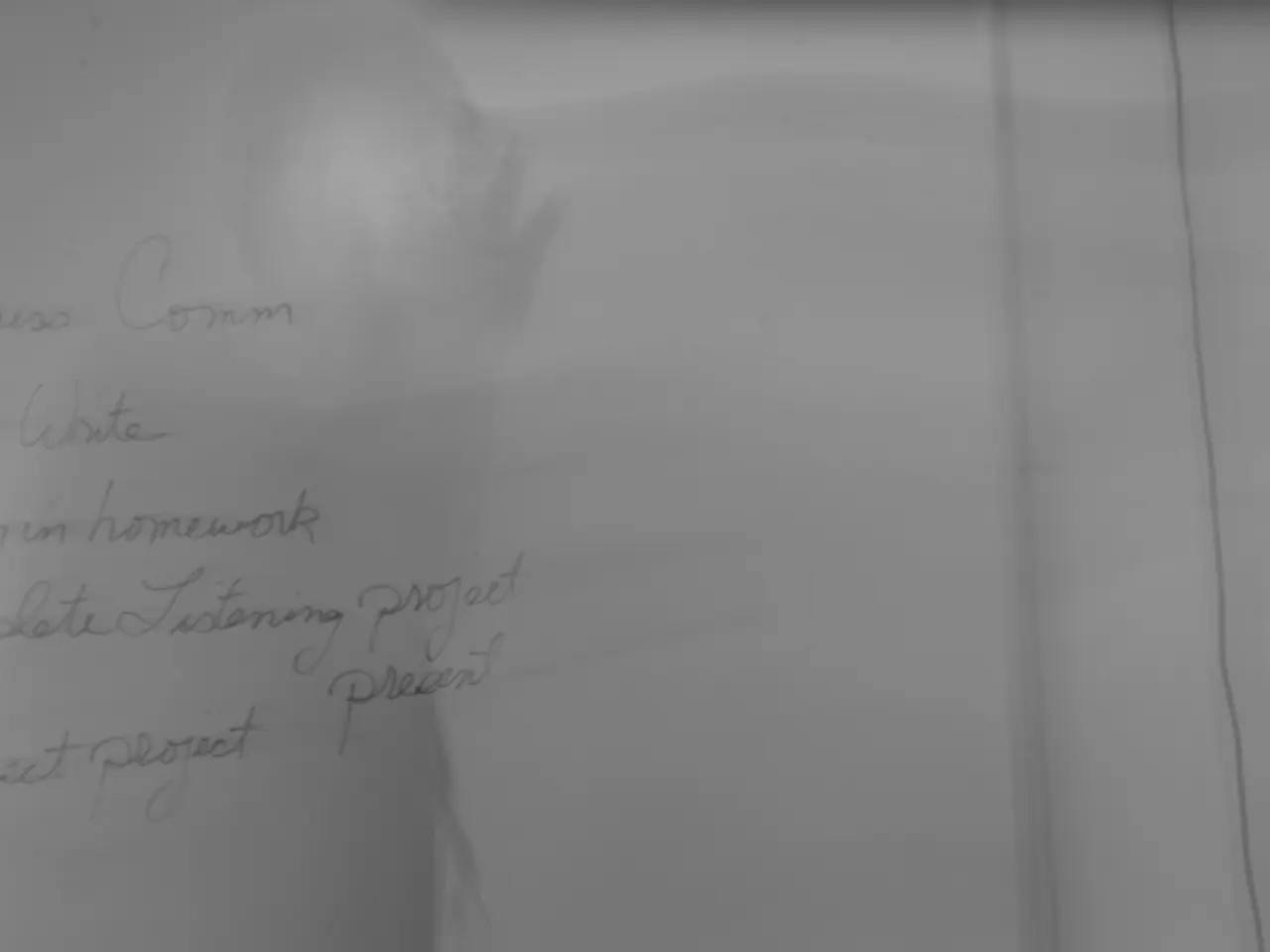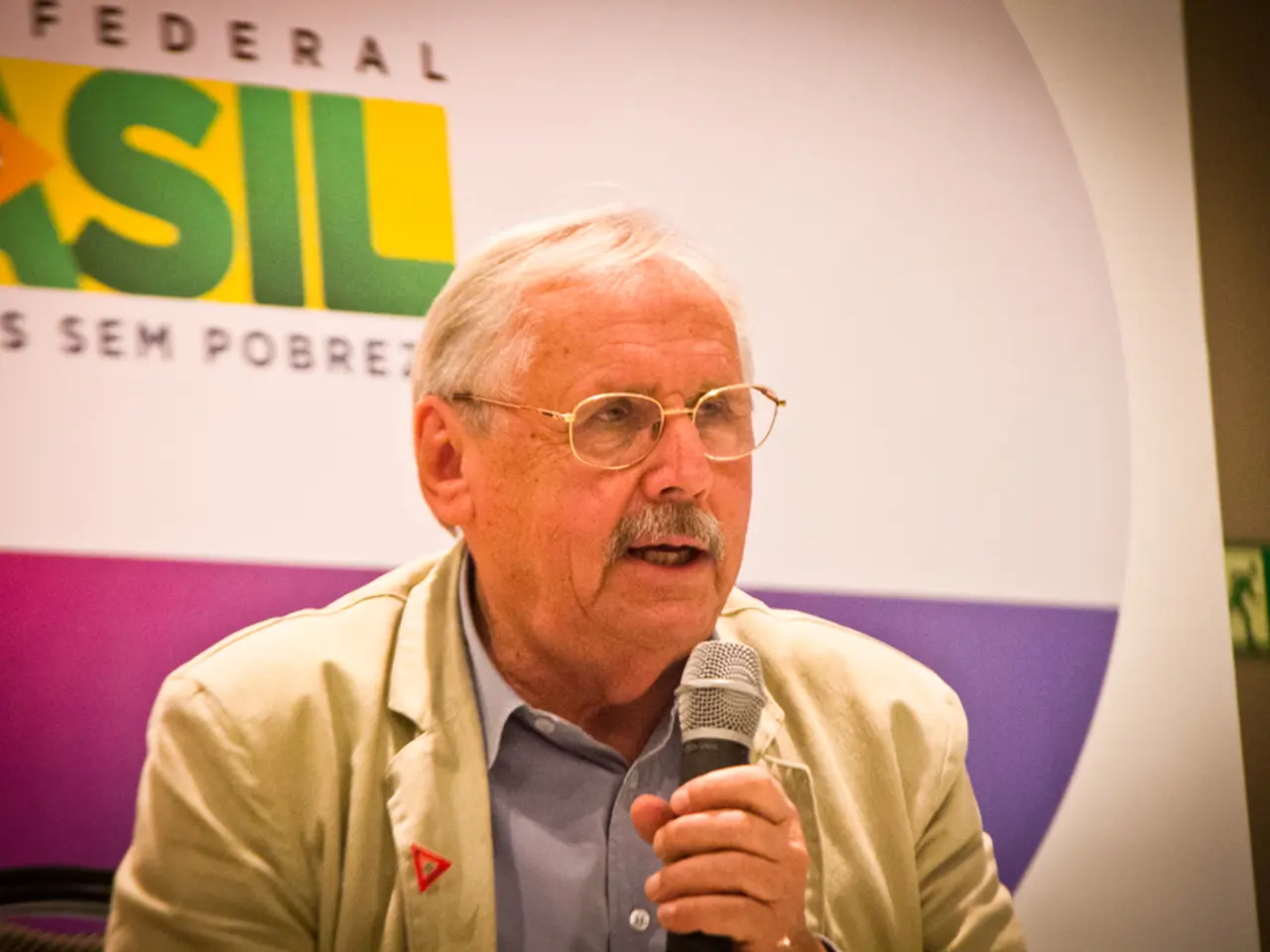Chemical industry in Germany predicts no shift in trajectory for the year 2025
The German chemical and pharmaceutical industries are currently navigating a complex landscape, with ongoing trade disputes, regulatory pressures, and economic downturn posing significant challenges. According to Markus Steilemann, President of the Association of the Chemical Industry (VCI), no growth is anticipated until 2025.
In the first quarter, the industries recorded a surge in sales and production due to customers placing orders in advance to circumvent US tariff threats. However, this momentum has not been sustained, with production falling by one percent in the first half of the year, and sales decreasing by 0.5 percent year-on-year, amounting to 107 billion euros.
The current situation has led to concerns among VCI members, with around 40 percent reporting a lack of orders. Production in the pharmaceutical sector has shown a slight increase of two percent in the first half of the year, but the overall industry has yet to fully recover from its crisis.
High energy costs, particularly gas prices, and labor costs are compounding the challenges faced by the industries, particularly in comparison to regions with lower operating overheads. The high capacity utilization in the EU is further inhibiting competitiveness.
In response, companies are implementing strategic adjustments, such as optimizing asset portfolios and shutting down higher-cost operations. For instance, Dow plans to close several upstream assets in Europe to improve profitability and cash flow.
However, the German chemical sector is not expected to see a strong recovery in 2025, with a slight output drop reported by Steilemann.
To address these challenges, potential solutions are being explored. One approach involves pivoting to high-purity chemicals and custom synthesis, which are essential for pharmaceuticals and electronics. This focus on quality can help maintain competitiveness. Custom synthesis and digital process optimization can also enhance efficiency and reduce waste.
Investments in sustainable technologies, such as green hydrogen production and e-Fuel and eMethanol production, are critical for reducing emissions and supporting a hydrogen economy. These initiatives align with EU climate goals and can aid in decarbonization.
Support for affected employees and no further site closures until 2030 are also crucial for stabilizing the workforce and maintaining industry viability. Agreements have been made to ensure socially acceptable job adjustments and support for affected employees.
Embracing circular economy principles, such as advanced recycling and substitution of petrochemical-based inputs, can help align with EU policy frameworks promoting carbon neutrality.
Steilemann has called for an industrial electricity price and the reduction of bureaucracy, which costs the German economy 146 billion euros annually, according to the Ifo Institute. Companies in the German chemical and pharmaceutical industries do not expect an upturn until next year, but with these potential solutions, there is hope for a brighter future for the industries.
1) Despite the challenges in the German chemical and pharmaceutical industries, companies are making strategic adjustments such as optimizing asset portfolios and focusing on high-purity chemicals and custom synthesis for pharmaceuticals and electronics, which can help maintain competitiveness.
2) In an attempt to address the current challenges, investments in sustainable technologies like green hydrogen production and e-Fuel and eMethanol production are crucial for reducing emissions, supporting a hydrogen economy, and aligning with EU climate goals.








